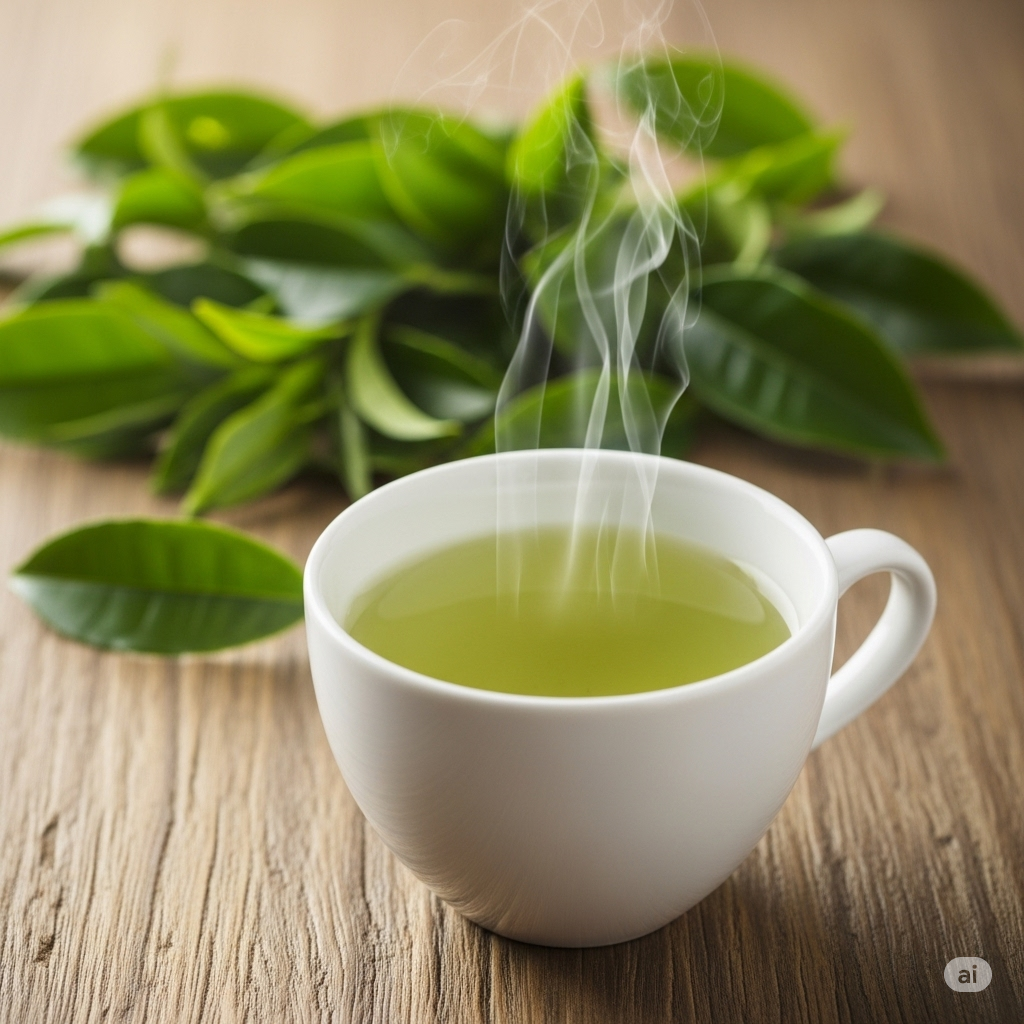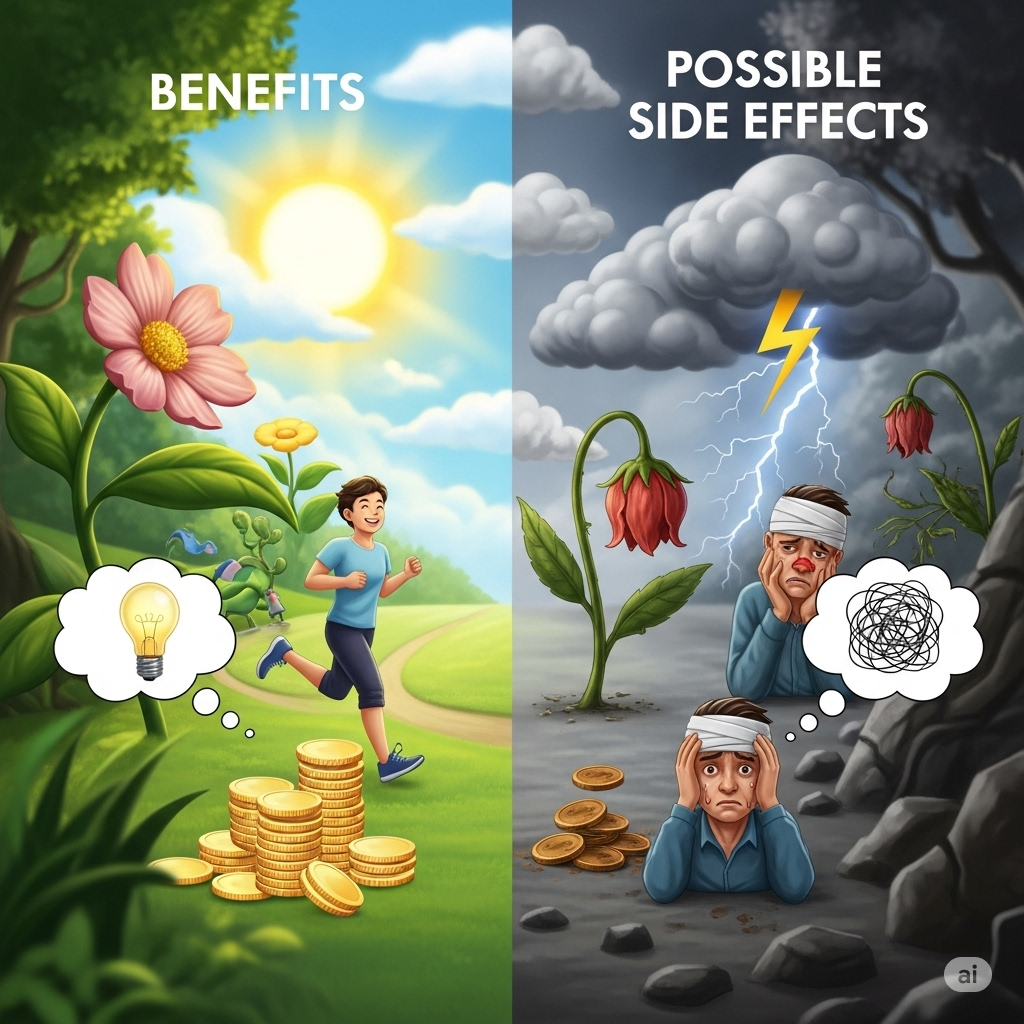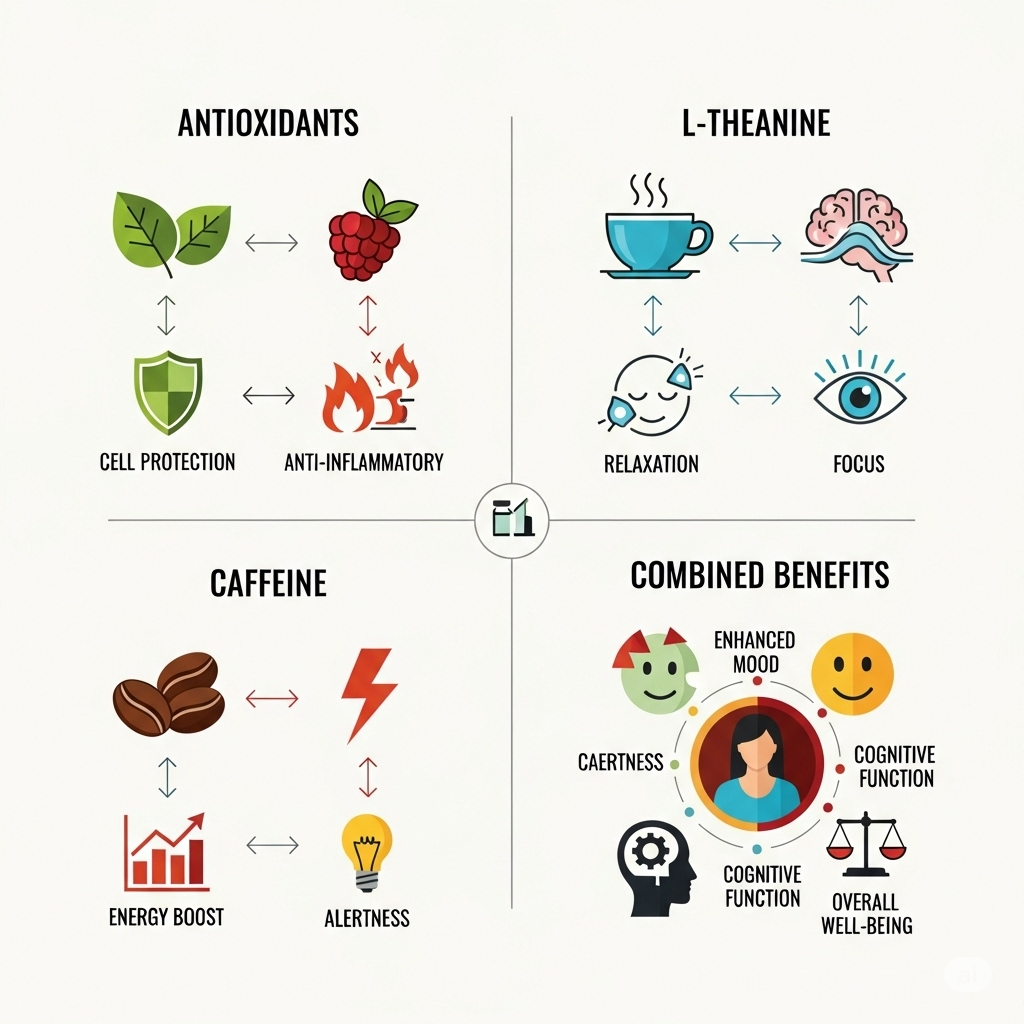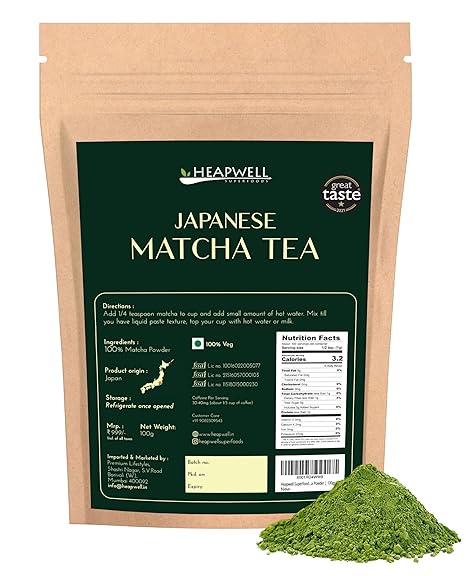Can Drinking Green Tea Every Day Be Harmful?
Green tea is often praised as a super drink—loaded with antioxidants, polyphenols, and health-boosting compounds. Many people swap their morning coffee for a soothing cup of green tea, believing it’s a healthier choice.
And it’s true—green tea can support weight management, heart health, brain function, and even skin health. But like many good things, too much of it can cause harm.
In this article, we’ll explore how much is too much, the potential side effects of daily green tea, and how to enjoy it without putting your health at risk.

1. What Makes Green Tea Popular?
Green tea has been consumed for centuries in countries like China and Japan. Its popularity in the modern world comes from research highlighting its rich content of:
- Catechins (especially EGCG – Epigallocatechin gallate) – powerful antioxidants.
- L-theanine – an amino acid that promotes relaxation without drowsiness.
- Caffeine – boosts alertness with less jitteriness compared to coffee.
Health claims often include improved metabolism, reduced risk of heart disease, better mental focus, and even cancer prevention.
But—like any bioactive drink—its compounds can have side effects if over-consumed.
2. How Much Green Tea Is Safe?
The general recommendation for most healthy adults is:
- 3–4 cups a day (about 720–960 ml)
- Or no more than 400 mg of caffeine daily (from all sources)
- For EGCG, some experts suggest staying under 800 mg per day
The amount of EGCG and caffeine in green tea varies based on brand, brewing time, and tea quality.
3. When Green Tea Can Become Harmful
While moderate consumption is safe for most people, drinking green tea excessively every day can lead to health problems.
A. Caffeine-Related Side Effects
Green tea contains less caffeine than coffee, but drinking it multiple times a day can still cause:
- Insomnia or restless sleep
- Nervousness and irritability
- Rapid heartbeat (palpitations)
- Headaches
Some people are more sensitive to caffeine, meaning even 1–2 cups may cause issues.

B. Iron Absorption Problems
Green tea contains tannins that can bind to iron in food, reducing its absorption. This can lead to iron-deficiency anemia over time, especially in:
- Pregnant women
- People with low iron diets (vegetarians, vegans)
- Children
Tip: Avoid drinking green tea right before or after meals rich in iron.
C. Stomach Irritation
The tannins in green tea can also increase stomach acid, causing:
- Nausea
- Acid reflux
- Stomach discomfort
Drinking green tea on an empty stomach may worsen these effects.
D. Liver Health Concerns
Although rare, high doses of green tea extract supplements (not regular brewed tea) have been linked to liver damage due to concentrated EGCG levels.
Symptoms may include:
- Yellowing of the skin or eyes
- Dark urine
- Fatigue
E. Bone Health Risks
Excessive caffeine intake can increase calcium loss through urine, which might impact bone health over many years—particularly for older adults or postmenopausal women.
If you want to enjoy fresh green tea anywhere, a portable brewing solution like this glass tea infuser bottle makes it easy.
4. Groups Who Should Be Extra Cautious
- Pregnant or breastfeeding women – High caffeine intake may affect the baby’s development or cause irritability.
- People with heart problems – Too much caffeine can trigger irregular heart rhythms.
- Individuals with stomach ulcers or acid reflux – Green tea can worsen symptoms.
- Those with anemia – It may reduce iron absorption.
- People taking medications – Green tea can interact with certain drugs.
5. Green Tea and Medication Interactions
Green tea may interact with:
- Blood thinners (like warfarin) – Catechins may affect clotting.
- Beta-blockers – Caffeine can reduce effectiveness.
- Stimulants – Can increase heart rate and blood pressure.
- Certain antidepressants – May increase side effects from caffeine.
If you’re on medication, consult your doctor before increasing green tea intake.
To get the most health benefits without pesticides or heavy metals, opt for certified organic tea. This Heapwell Superfoods Matcha Green Tea Powder is one of the most trusted options available.
6. Safe Ways to Enjoy Green Tea
You don’t have to quit green tea—just follow these safe habits:
- Limit to 2–4 cups per day
That’s enough to get health benefits without overdoing caffeine. - Avoid drinking on an empty stomach
This reduces nausea risk. - Don’t drink it with iron-rich meals
Wait at least 1 hour after eating iron-containing foods. - Choose high-quality tea
Low-quality teas may contain pesticides or heavy metals. - Skip super-concentrated extracts
Especially avoid high-dose EGCG supplements unless prescribed.

7. Is Decaffeinated Green Tea Safer?
Decaffeinated green tea reduces caffeine-related side effects but still contains catechins and tannins. It can be a good choice for people sensitive to caffeine, though it’s not completely risk-free.
8. Green Tea vs. Green Tea Supplements
- Brewed tea – Lower concentration of EGCG, safer for daily drinking.
- Capsules/extracts – Much higher EGCG levels, linked to liver toxicity in high doses.
Whenever possible, choose natural brewed tea over supplements unless medically advised.
For a caffeine-free option that still offers antioxidants these organic decaf green tea bags are a great pick.
9. Final Verdict: Is Daily Green Tea Harmful?
For most healthy adults, drinking 2–4 cups of green tea daily is safe and even beneficial.
Problems usually arise when people:
- Consume 5–10 cups daily for months or years
- Take concentrated green tea extract supplements without supervision
- Drink it without considering personal health conditions or medication interactions
Moderation is key—green tea is a healthy addition to your lifestyle, but it’s not harmless in unlimited amounts.
Enjoy green tea in moderation, listen to your body, and consult your healthcare provider if you have any health concerns.








